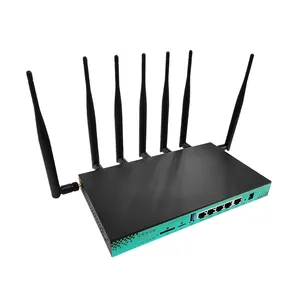Introduction to Internet Service Provider Equipment
Internet Service Provider (ISP) equipment plays a vital role in the delivery of high-speed internet to consumers and businesses alike. This equipment not only enables connectivity but also ensures that data flows seamlessly, enhancing user experiences and optimizing operational efficiencies. As the demand for reliable internet services continues to grow, understanding the types, features, and applications of ISP equipment becomes essential for any ISP to thrive in a competitive market.
Types of Internet Service Provider Equipment
ISP equipment comes in various forms, each tailored to meet specific connectivity needs. The main types of equipment include:
- Modems: These devices connect an ISP to the internet and convert digital signals for customer use.
- Routers: Essential for directing data traffic between networks, routers allow multiple devices to connect to the internet simultaneously.
- Switches: Used to connect multiple devices within a local network, switches facilitate efficient data transmission by reducing collisions.
- Access Points: These expand network coverage by transmitting wireless signals for broadband access, providing flexibility and mobility for users.
- Network Interface Cards (NICs): Installed in devices to provide network connectivity, NICs are integral for data exchange between the device and ISP.
Function and Features of Internet Service Provider Equipment
The main functions of ISP equipment are to connect users to the internet, manage data traffic, and ensure reliable service. Key features include:
- Bandwidth Management: The ability to allocate bandwidth efficiently among users to ensure fair usage and optimal performance.
- Quality of Service (QoS): Implements policies that prioritize certain types of traffic, like video calls, ensuring they receive the necessary bandwidth during peak times.
- Security Features: Advanced encryption and firewall capabilities that protect user data from unauthorized access and cyber threats.
- Scalability: Many pieces of ISP equipment can be easily scaled to meet growing demands, providing a cost-effective method to enhance network capacity.
- User-Friendly Interfaces: Intuitive management interfaces that allow ISPs to monitor and manage network performance effortlessly.
Applications of Internet Service Provider Equipment
ISP equipment is fundamental to various applications across multiple industries. Notable applications include:
- Residential Internet Service: Equipment like modems and routers are essential for delivering high-speed broadband to homes.
- Business Connectivity: ISPs provide tailored solutions for businesses that require reliable internet access for operations, video conferencing, and cloud applications.
- Public Wi-Fi Networks: Access points are key for deployment in public areas, offering connectivity for visitors and boosting local businesses.
- Telecommunication Networks: ISP equipment is integral in the backbone of telecommunication services, facilitating voice and data exchanges.
- Smart Cities: Utilizing ISP equipment allows cities to harness technology for improved public services, traffic management, and community engagement.
Advantages of Internet Service Provider Equipment
The use of advanced ISP equipment brings myriad advantages, contributing to a superior internet experience for users. Key benefits include:
- Improved Connectivity: High-quality equipment enhances internet speed and reduces latency, resulting in a more reliable service.
- Enhanced Security: Robust security features decrease the risk of data breaches, providing peace of mind for users.
- Cost Efficiency: Investing in quality equipment can lead to long-term savings, reducing downtime and maintenance costs.
- Versatility: Different types of ISP equipment can be utilized for various applications, making it adaptable for a wide range of users.
- Future-Proofing: High-quality equipment is designed to be scalable, ensuring it can support future technological advancements and growing consumer demands.











































